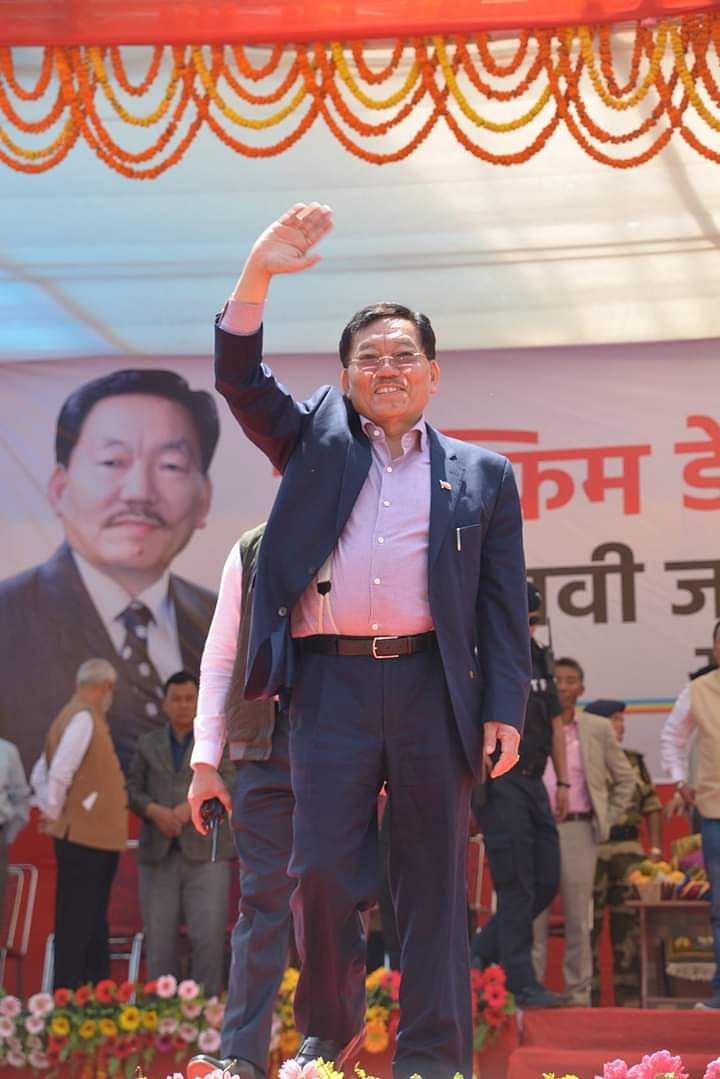
The ouster of India's longest-serving chief minister from power by one of his closest aides catapulted the quaint Sikkim to national headlines in 2019, a year which also saw the Himalayan state record robust rise in tourist footfall.
Pawan Kumar Chamling, 69, the founding president of Sikkim Democratic Front (SDF), was humbled in a cliffhanger assembly election in May by Prem Singh Tamang (Golay), himself a co-founder of the erstwhile ruling party.
Tamang's Sikkim Krantikari Morcha (SKM) secured 17 seats as against the Chamling-led SDF's 15 in the 32-member House.
Chamling bowed out of power after five successive terms as the chief minister since December 1994, eclipsing the late Jyoti Basu, who was the West Bengal CM from 1977 to 2000.
"The people of Sikkim voted for parivartan (change) and we promise to deliver the same," the 51-year-old SKM supremo had said in a thanksgiving speech to 6.5 lakh people of Sikkim.
Gracefully accepting defeat, Chamling contended that the electorate did not reject his party altogether, handing him the mandate to play out the role of a constructive and strong opposition.
However, in the course of the next few months after the assembly polls, the SDF legislature party fell apart with 10 of its MLAs switching over to the BJP, which polled a mere 1.62 per cent votes and had no legislators in the state assembly.
Two other SDF legislators joined the SKM, leaving the once-mighty party with a solitary MLA, Chamling himself.
Tamang and his party, meanwhile, grew from strength to strength by becoming a coalition partner of the NDA at the Centre, months after he dumped the BJP ahead of the Sikkim assembly polls over differences in seat sharing.
The chief minister also consolidated his position in the SKM, getting elected to the state legislative from the Poklok-Kamrang constituency in south Sikkim, a seat his predecessor, Chamling, had vacated.
The BJP, too, benefited from the alliance with the dominant regional party, registering its maiden electoral success in the border state from two assembly seats (Martam Rumtek and Gangtok) in the bypolls held in November.
The political developments aside, Sikkim witnessed a significant increase in the footfalls of tourists, the number exceeding 20 lakh in 2019.
The border state also drew applause from President Ram Nath Kovind for setting a "great example" about living in harmony.
"It is good to know that the people of all religions in Sikkim live in peace and harmony, and participate in each other's festivities with enthusiasm... they have set a great example before their brethren in other parts of India about how to live with harmony and interact with each other," Kovind said at the recent convocation ceremony of Sikkim University here.
The picturesque Sikkim, however, was roiled by the heated debate over the controversial Citizenship (Amendment) Act and the National Register of Citizens, joining a host of other states in voicing opposition and concern over CAA and NRC.
Citing reservations of the indigenous people of Sikkim, SKM MP Indra Hang Subba voted against the Citizenship (Amendment) Bill (CAB) in the Lok Sabha despite Union Home Minister Amit Shah's assurance that the legislation will not come into force in the state till the assembly passes a resolution in the House for its adoption.
A number of political parties and civil society bodies took out marches against the CAA, asserting that it was violative of Article 371 (F) of the Constitution, which provides special status to the state and protects the rights of the indigenous people.
Tamang and his ruling party faced an uphill task to sooth the frayed nerves of people, even as local BJP leaders continued backing their central leadership, insisting that the legislation be implemented in Sikkim as well.